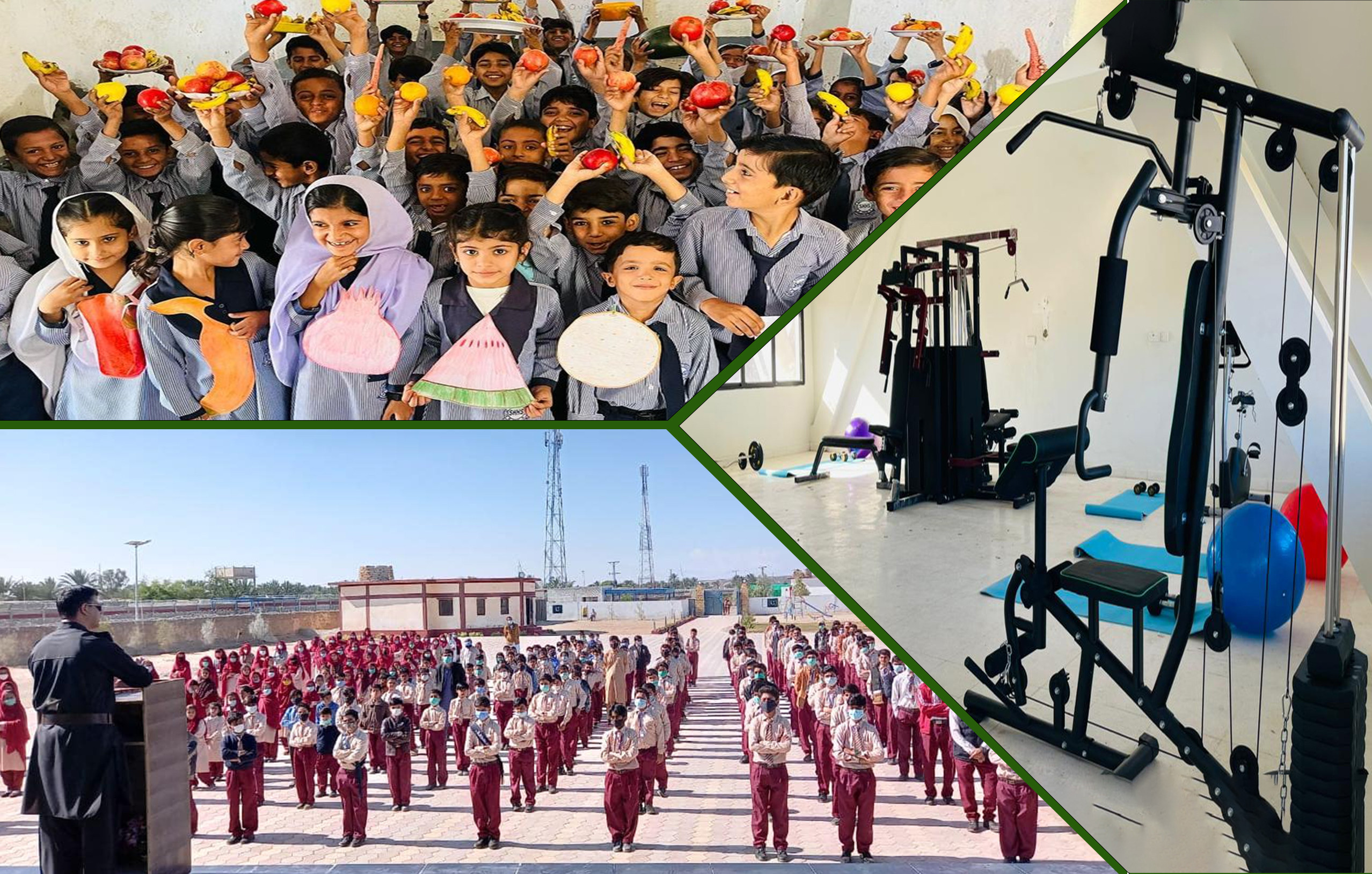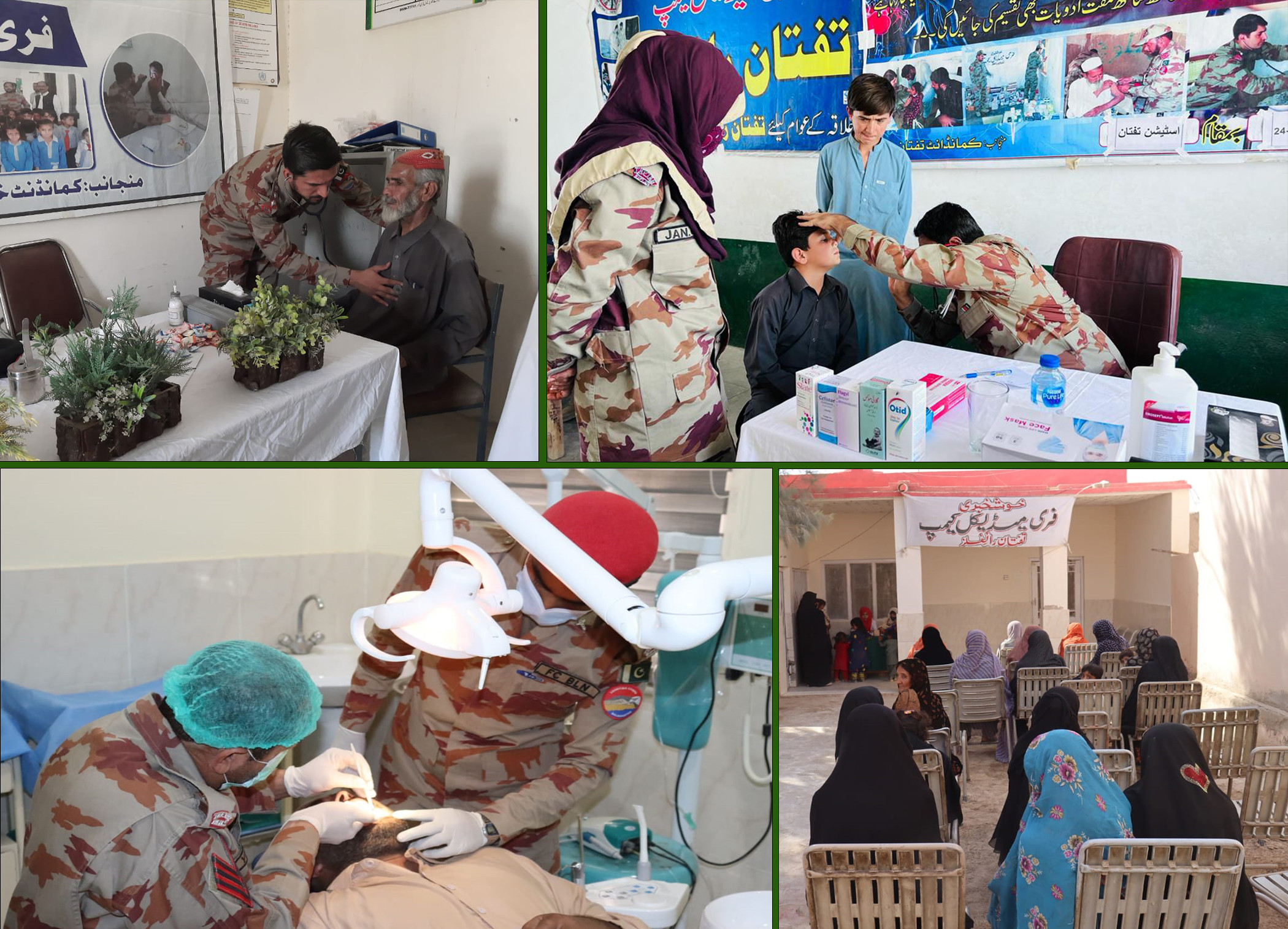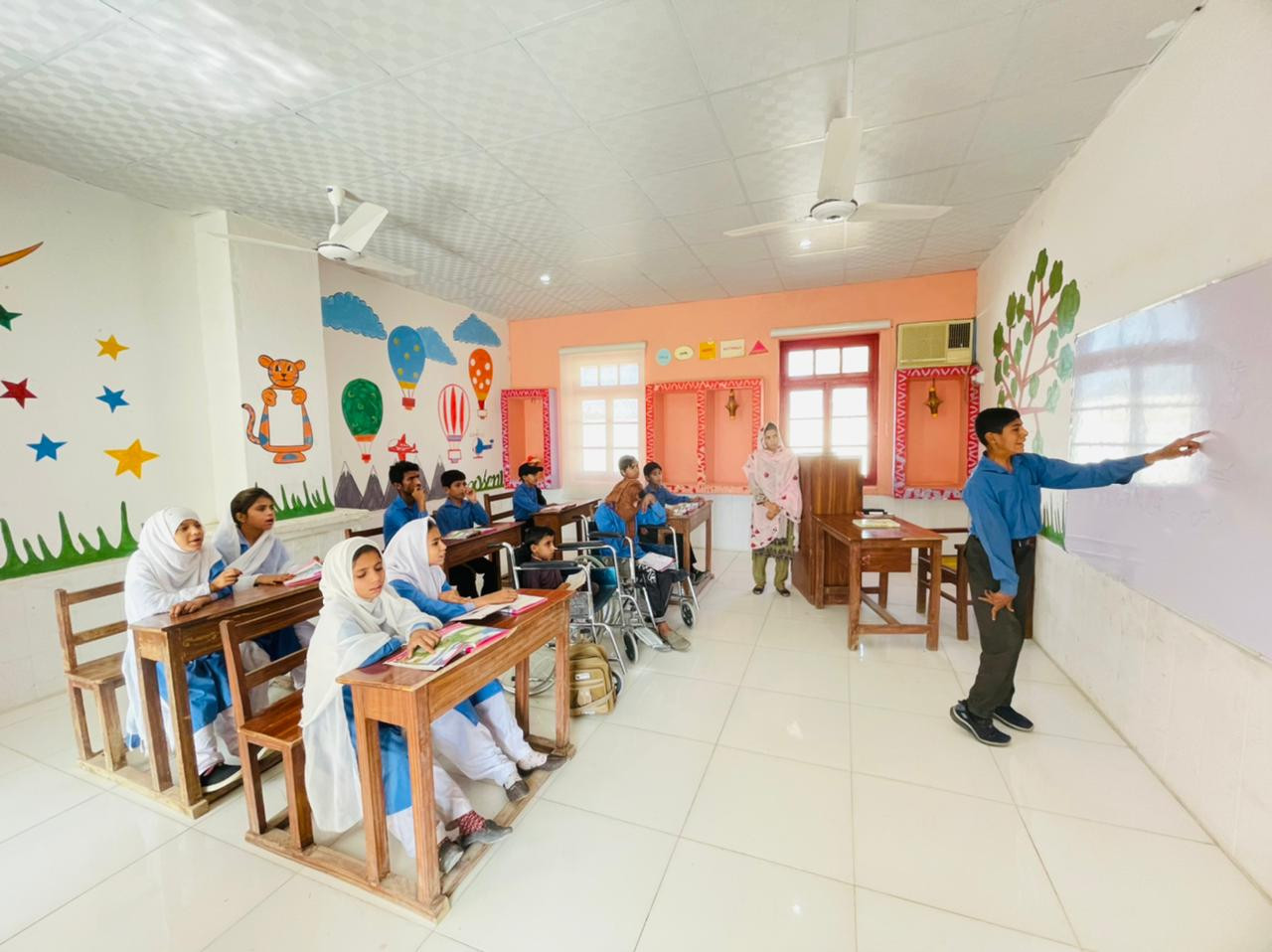Since its inception, Pakistan has encountered significant challenges and amidst these, the country’s national institutions have joined forces, prioritising collaboration to surmount obstacles and foster progress.
Whether it is a nationwide medical situation such as an epidemic, the pandemic, a security or terrorist threat or natural disaster, such as floods, earthquakes and landslides, in any area where government authorities have fallen short because of limited resources, the Pakistan Armed Forces with unwavering commitment and bravery has exhibited professionalism and efficiency to come forward and address the challenge.
Amidst these achievements, it is equally crucial to shed light on the invaluable contributions of our civil armed forces, especially the Frontier Corps (FC) Balochistan, whose efforts often remain backstage.
The civil armed forces (CAF). comprise a group of nine paramilitary, uniformed organisations, separate and distinct from the regular ‘military’ Pakistan Armed Forces. These include the Pakistan Rangers, FC, and the Frontier Constabulary. The CAF operates in close coordination with the regular armed forces and law enforcement agencies, and play a vital role in maintaining internal security and law enforcement across the country.
The FC Balochistan
Balochistan has a divers sociopolitical, cultural and historical landscape. Moreover, the area is characterised by vastness of terrain, scattered population centres and demanding communication infrastructure, which necessitate the need for deliberate operational planning and well-coordinated execution, so that security forces are able to engage with the social and political dynamics of the conflict, instead of simply responding to them.
Considering the vast area of responsibility and enormity of challenges facing the province (this point may address your 1st query in subsequent para, however, it is further elaborated), six years ago, FC Balochistan was administratively divided into two wings ― FC Balochistan North and FC Balochistan South.
The FC Balochistan South is a group of paramilitary forces of Pakistan, operate in the southwestern part of the province of Balochistan, to oversee the country's borders with Afghanistan and Iran and assist with maintaining law and order. It is one of four Frontier Corps with the others being: FC Khyber Pakhtunkhwa (North) and FC Khyber Pakhtunkhwa (South) stationed in Khyber Pakhtunkhwa province, and FC Balochistan (North) stationed in the northern part of Balochistan province.
The primary value of the FC Balochistan lies in their ability to assist civil authorities during times of crisis, natural disasters, and situations that require immediate response. Their presence ensures a swift and organised response to challenges such as terrorism, insurgency, and border security, complementing the efforts of the police and military.

Their work extends beyond traditional security duties, as they actively contribute to maintaining peace in conflict-prone areas, safeguarding national infrastructure, and securing borders. Their operational proficiency and intimate knowledge of the local terrain make them a crucial force in tackling asymmetric threats.
They have been instrumental in fostering inter-provincial and inter-agency collaboration, reinforcing national unity, and maintaining stability in diverse and challenging circumstances. Through their dedicated efforts, they contribute significantly to the overall security and development of Pakistan.
During disasters, they often engage in humanitarian and relief work to provide aid and support to affected communities by saving lives and delivering timely aid. It also provided a conducive environment and the resources needed for the polio campaign and census teams.
In the pursuit of comprehensive development, FC Balochistan also provides essential services that range from healthcare and clean water to education and vocational training.
The FC Balochistan South
Founded in July 2017 (what was the need for this particular new group? Did some political change prompt its set up?
The need for raising FC South was (a) geo-political; (b) vast area of responsibility; (c) effective border management; and (d) securing lines of communication), it didn’t take the organisation long to establish itself by training its manpower to successfully carry out its primary responsibilities of border security and law enforcement.
Peace makers
For the past six years, they have ensured security and welfare in the area Not only is FC South responsible for monitoring Pakistan’s borders with Afghanistan and Iran, but also to maintain law and order in Southern Balochistan. Vigilant in maintaining peace, they actively engage in welfare initiatives that gives assurance to the people of the region that their safety remains top priority.
Border control
In order to delineate Pakistan’s borders with Afghanistan and Iran, to combat cross-border terrorism, and prevent illegal movement and drug smuggling across the border, a decision to fence the borders with Afghanistan was taken in 2017 and the task was assigned to FC South. In a time period of four years.
As much as 92 per cent of the Pakistan-Iran border and 95 per cent of the Pakistan-Afghanistan border have already been fenced.
Security for strategic locations
The FC South provides security to the projects of strategic importance in its areas of its responsibility. This includes the completed segment of M8 Motorway on the CPEC route from Gwadar to Hoshab and the under-construction section from Hoshab to Awaran.
Other than that, they also ensure the security for the copper and gold mine projects in Saindak, Reko Dik, Sahdal and Dodar and exploration projects of the Oil and Gas Development Company Limited and Pakistan Petroleum Company Limited in South Balochistan.

Balochistan is the largest province of Pakistan covering 43%/ 44% of country’s total area having 800 Km / 1468 Km border with Afghanistan in North-West and 600 Km/ 909 Km long border with Iran in the West.
The FC South is also responsible for providing security to important dams such as Mirani, Tapak, Gishkor, Garuk, Shadi Kor and Shupak and to under-construction roads including Turbat to Bulda and Mand, Basima to Khuzdar and Yekmach to Kharan.
Business and economic help
Balochistan, mostly reliant on production of mines and minerals besides agriculture and livestock, continues to rank at the bottom of the human development index. As new avenues of trade, the border markets are seen as central points for legal trade between the two business communities that will improve the socio-economic conditions of the border people of South Balochistan and create business opportunities for the local businessmen. The FC Balochistan South provided a favourable environment during the construction of Pakistan-Iran border markets. Not only did it conceive the project, in conjunction with Pakistani agencies and authorities, it encouraged the Iranian Border Security Force to implement the initiative through joint border meetings; and provided a secure environment at Radike in Kech district and Chidgi in Panjgur district.
Education
As in any other underdeveloped area, schools are often overcrowded and under-resourced, leaving children without the necessities needed to learn and develop. Many schools have no furniture and children sit on the bare floor in classrooms. Not everyone can relate to the happiness of a child who gets to sit on a chair in class, after enduring the floor and never even imagining that one day, chairs would arrive in their classroom.
Currently, the literacy rate in Balochistan is 44%, and compared to other provinces it hasn’t improved. However, in various districts of the southern part of the province, presently two colleges, five high, one middle, and two primary schools can be credited to the initiatives and efforts of the FC South.
These institutions not only provide free education, uniform and textbooks, etc to 458 students, but also employment to about 230 teachers and 90 male support staff. Over 93 needy students have been facilitated with scholarships. Around 18 government schools in remote areas such as Awaran, Kharan, Taftan, Balida, Mand, Tump, Turbat and Panjgur that were in dilapidated and neglected state were reconstructed by FC South, while solar panels were installed in 13 schools and libraries set up in five more.

Chairs were provided to students in 56 schools, while school bags, uniforms and stationery were arranged for 5000 students. Since there is a shortage of teachers in various areas, the FC South provided qualified teachers and bears the salaries of 17 teachers.
For transportation of the students of Turbat University, FC South provided six buses at the annual cost of over Rs 10 million from April 2021 till May 2023. Additionally, 110 laptops were also distributed among the students.
In a province where the weather touches extremes, it is hard to imagine what it ust be like to sit in a classroom without a fan.
Since Turbat is one of the hottest places in Asia, so FC South has donated 68 air conditioners costing over Rs 70 lakhs to the university for students. Another Rs 10 lakh were spent on the purchase of gym equipment for the Makran Medical College students.
Specialised education
Apart from services in mainstream education, FC South has also established a Global Oriented Lines of Development Centre in Panjgur, where Chinese language, Islamic education, computer management is taught. A school in Kharan ensures the education and well-being of 52 differently-abled children.
Medical camps
Since access to most parts of South Balochistan is difficult, it is not always physically and financially possible for people to access health facilities promptly. Since 2019, just two years after its foundation, FC South has arranged 125 free medical camps in remote areas where a total of 52,317 people have availed medical assistance or medicines, and 47,382 laboratory tests have been conducted for the diagnosis of various diseases. Excluding logistical costs, a medical camp costs Rs 60,000 to Rs 70,000, just for medicines and laboratory testing. Additionally, Rs 30 million have been spent so far on reconstruction of four basic health units, and provision of anti-venom and anti-rabies vaccines to medical centres in different areas. This assistance is no less than a boon for those who live in remote areas or cannot bear the burden of travel expenses.
Clean water
A total of Rs 59 million has been spent by FC South on water projects, apart from launching 18 water supply schemes, and construction of 14 solar-powered reverse-osmosis water filtration plants in different areas.
Sport and culture
In addition to providing security and maintaining peace, the FC South also participates in community development projects, fostering a sense of trust and cooperation among the local population.
In this regard, 14 sports fields have been constructed throughout southern Balochistan, while sports gear and kits have been provided to 50 teams in Kech, 44 in Washak, 9 in Kharan and 16 in Chagai. These endeavours financially translate into Rs30 million rupees.
The Baloch Culture Day, perhaps one of the biggest cultural events in the history of this region, was organised in March last year, at the cost of Rs 15 million.
Conclusively, FC South has lived up to the expectations of their Baloch brethren, while hundreds of FC South soldiers sacrificed their lives while defending the homeland, and working to build border fences and conducting the law enforcement operations.
It is essential to recognise the sacrifices made by these members of the Civil Armed Forces, who often face dangerous and demanding situations while safeguarding the nation. Their unwavering commitment and professionalism ensure that Pakistan can address its internal security challenges effectively, making them an invaluable asset to the nation's progress and stability.
Tariq Wahab is a scholar and researcher focused on the mainstreaming of tribal and ungoverned territories in Pakistan.
All facts and information is the responsibility of the writer
